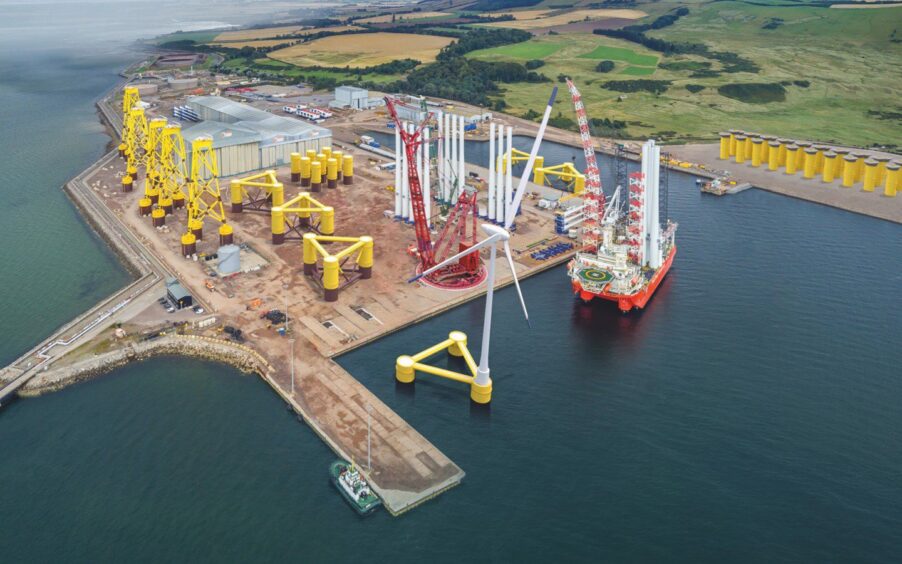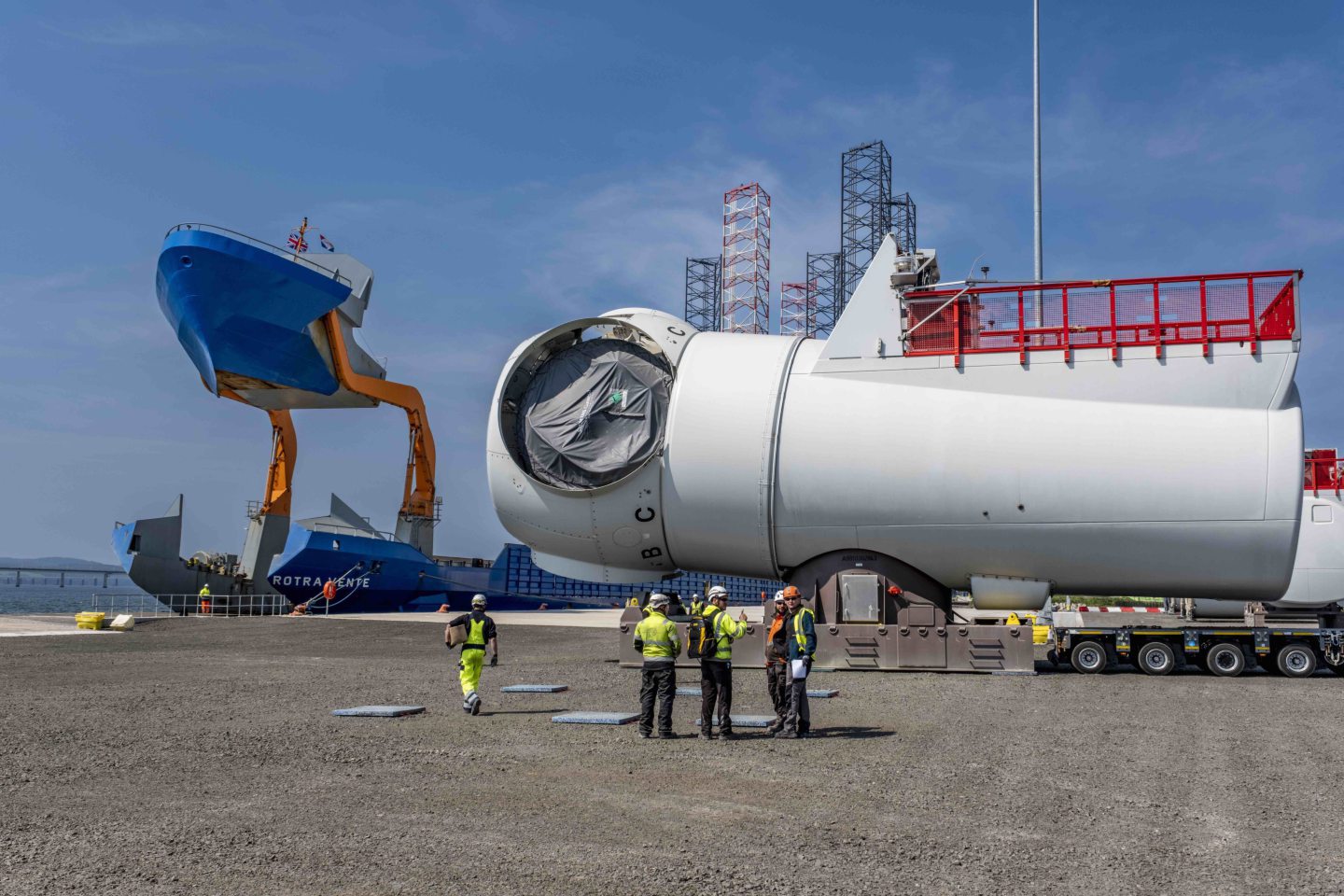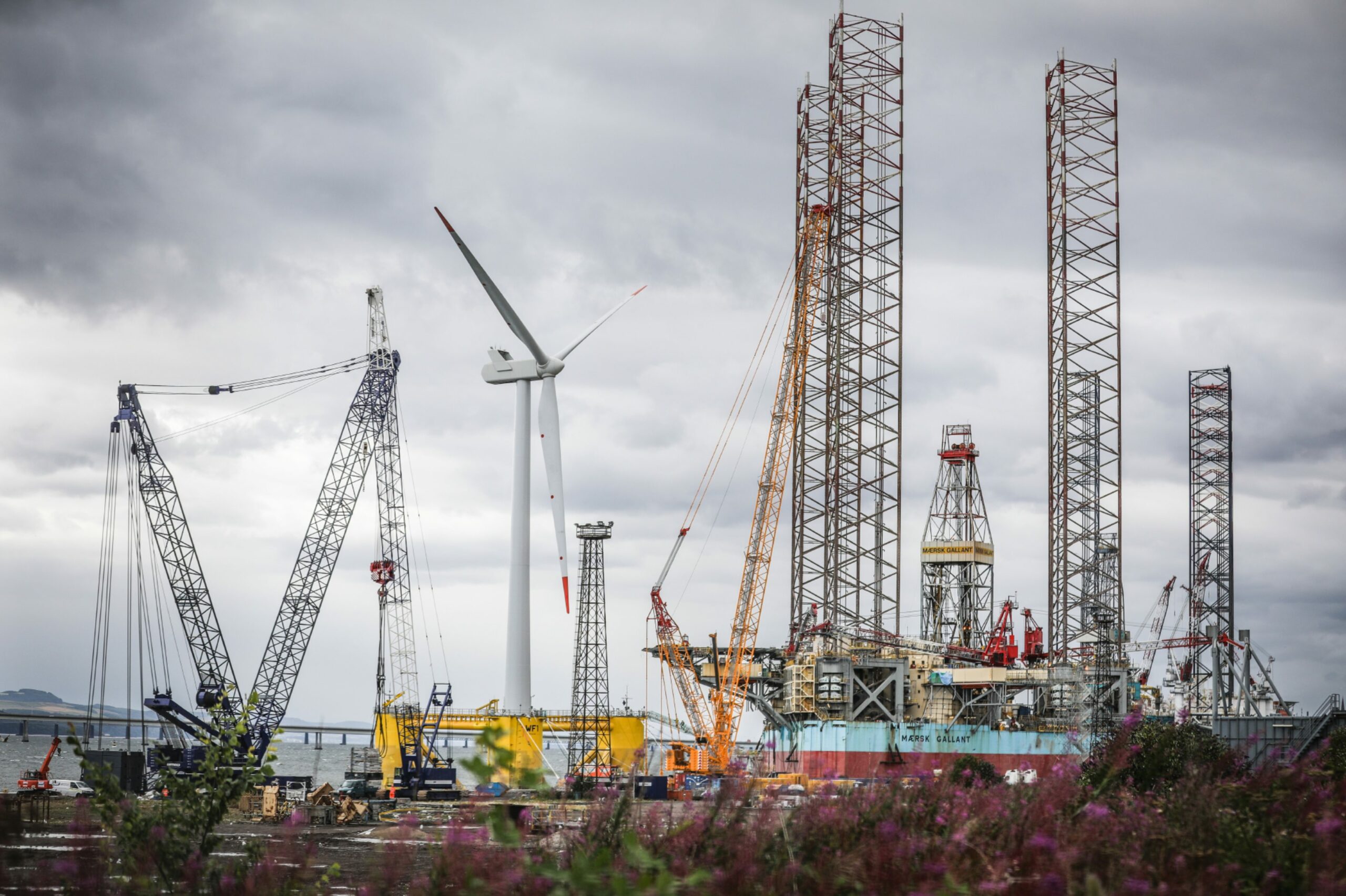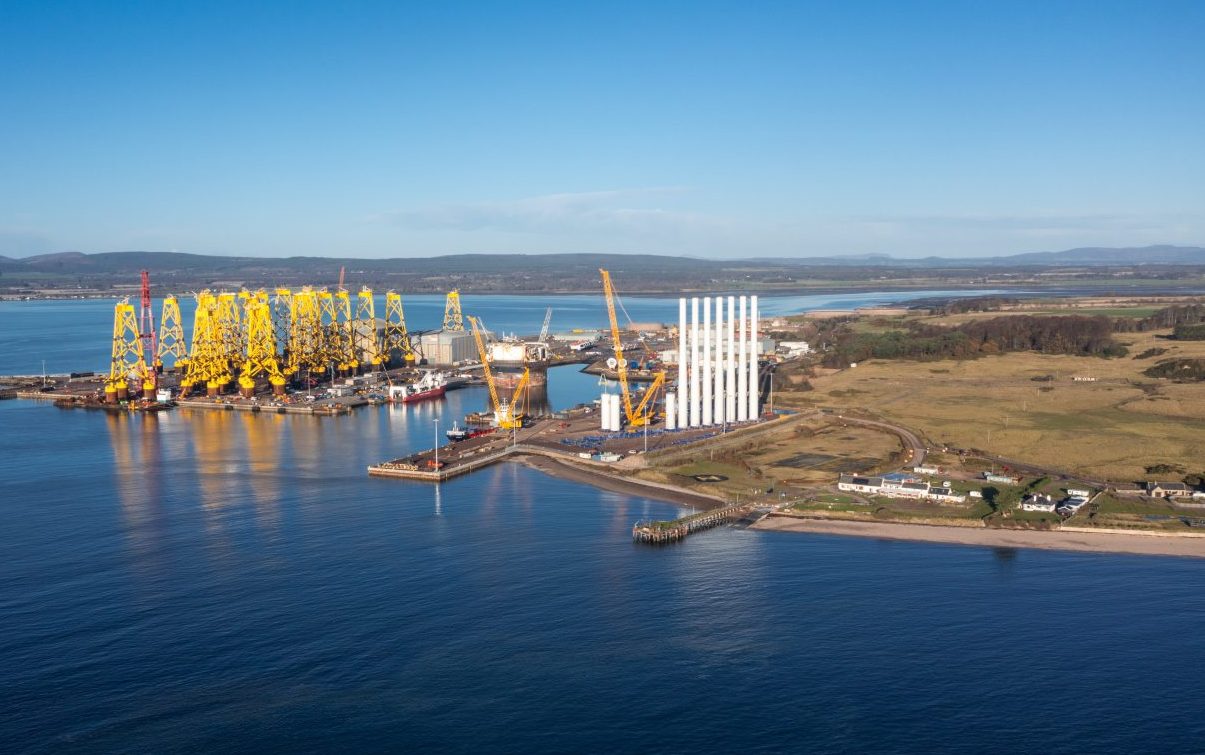
I’ve lost count of how many times I’ve told someone that we’re still not thinking big enough when it comes to offshore wind in Scotland.
Even though we have a 45GW pipeline of offshore wind and even though we have the biggest projected capacity for floating wind in the world, we’re still not grasping the thistle when it comes to the opportunity blowing along Scotland’s coastline.
After decades of being the ‘Energy capital of Europe’ with a rich history in oil and gas, another massive economic opportunity has sailed into Scotland that will power not just our country but all of the UK for generations to come.
Meeting the UK and Scottish Government’s 2030 offshore wind targets will depend not only on a commitment from developers to drive projects but on a whole raft of skilled, experienced, innovative suppliers, too. From offshore inspection, port services and steel fabrication to civil engineering, electrical products and even accommodation services, there is a wide variety of work to be tendered for, won and delivered.
But these businesses will need to have confidence in the timelines of these projects – while they can see the pipeline they have no assurances that they will go ahead.
Businesses looking to expand their facilities and grow their capabilities while hiring and upskilling staff need to be able to justify the investment.
Looking at the prospect of a project going ahead and then the likelihood of winning a contract – businesses focus on probability go and probability win. The reality is a bit Catch-22. Until offshore wind farms secure a financial investment decision the supply chain has no confidence these projects will proceed so cannot invest in their business to accommodate the projects they hope to support.
We know there are many challenges to delivering offshore wind but many of these we’ve known about for years. Again, we’re not thinking big enough.
To keep investors interested these barriers to deployment must be urgently addressed. Growing the local supply chain, developing our skills and resources, grid connections, establishing essential infrastructure and, of course, speeding up the time it takes to get projects through a convoluted planning and consenting system.
Currently, projects can spend more time in the consenting process than in the offshore construction phase.
If we don’t urgently address these barriers to deployment we run the risk of some ScotWind projects not going into the water. That would be an unforgivable failure of the administrations on either side of the Scottish border.
As we keep saying: offshore wind is a massive opportunity for Scotland and we need to act like it. It’s time to think big.
Both governments have committed to unlocking much-needed investment. The UK Government has announced a National Wealth Fund while in Scotland the Scottish National Investment Bank and the Scottish Government’s £500m supply chain funds will be key levers to unlocking crucial investment, but we need much more.
We have seen several encouraging announcements this year from global businesses planning to invest in our industry. From Sumitomo’s plans for a cable hub at the Port of Nigg, to XLCC’s manufacturing facility at Hunterston and Hyundai Heavy Industries pledging to explore manufacturing opportunities in Scotland.
This points to our renewable energy industry having a supply chain capable of building the facilities we will need to manufacture and deliver the components and services that will be deployed not just here but across the world.
That’s why tonight’s Scottish Green Energy Supply Chain Awards in Aberdeen is a big deal for our industry. We already have hundreds of ambitious local supply chain businesses who are playing a key role in delivering our renewable energy future.
Among tonight’s finalists include the Scottish ports that are building vital infrastructure to support the delivery of offshore wind, as well as the SMEs that are driving innovation across all renewable technologies and the businesses doing everything from seabed clearances to setting the standard for safety and quality control.
There’s so much going on in our industry with so much to play for. What we’ve achieved so far in the face of so much uncertainty is a testament to not only the ambition of the supply chain but also its resilience.
But, if we think bigger, we can do so much more.
Recommended for you

 © Supplied by Scottish Renewables
© Supplied by Scottish Renewables © Supplied by EDF Renewables
© Supplied by EDF Renewables © Kris Miller
© Kris Miller © Stuart Butler
© Stuart Butler